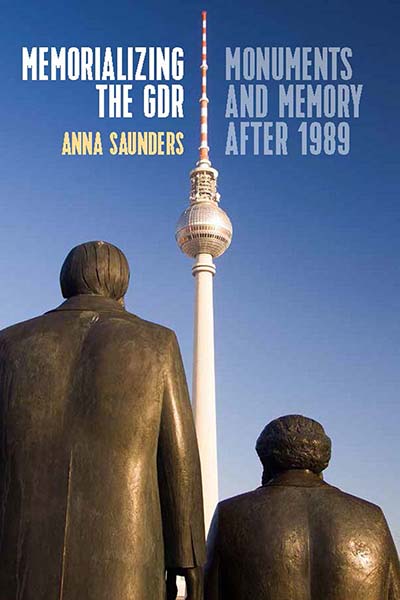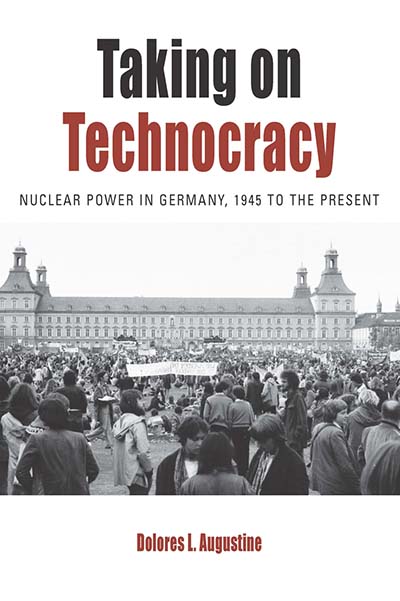We’re delighted to offer a selection of latest releases from our core subjects of Anthropology, Economic History, Film Studies and History, along with our New in Paperback titles.
Continue reading “SIMULATED SHELVES: BROWSE September 2018 NEW BOOKS”


Continue reading “SIMULATED SHELVES: BROWSE September 2018 NEW BOOKS”
 We are delighted to inform you that we will be attending the annual German Studies Association conference in Pittsburgh PA, on September 27th-30th, 2018. Please stop by our stand to browse our latest selection of books at discounted prices & pick up some free journal samples.
We are delighted to inform you that we will be attending the annual German Studies Association conference in Pittsburgh PA, on September 27th-30th, 2018. Please stop by our stand to browse our latest selection of books at discounted prices & pick up some free journal samples.
Berghahn Books is very pleased to invite you to a wine reception at the GSA co-hosted with the DEFA Film Library, University of Massachusetts Amherst. Please join us on Friday, September 28th from 5-6pm in the book exhibit area to celebrate the publication of SCREENED ENCOUNTERS: The Leipzig Documentary Film Festival, 1955-1990 by Caroline Moine, the first volume in our new Film and the Global Cold War series.
If you are unable to attend the conference, we would like to provide you with a special discount offer. In celebration of the New Academic Year, receive a 50% discount, until 30th September 2018 on all German Studies titles found on our website. At checkout, simply enter the discount code GSA18.
Browse our new 2018-19 German Studies Catalog online or visit our website for a complete listing of all published and forthcoming titles. Continue reading “Berghahn will be at the German Studies Association 2018 Conference!”
On August 13, 1961, Berlin woke up to a shock: the East German Army had begun construction on the infamous Berlin Wall. The Wall was initially constructed in the middle of Berlin, and expanded over the following months. It entirely cut off West Berlin from the surrounding East Germany, prohibiting East Germans to pass into West Germany.
The Eastern Bloc claimed that the wall was erected to protect its population from fascist elements conspiring to prevent the “will of the people” in building a socialist state in East Germany. In practice, the Wall served to prevent the massive emigration and defection that marked East Germany and the communist Eastern Bloc during the post-World War II period. The Berlin Wall came to symbolize the “Iron Curtain” that separated Western Europe and the Eastern Bloc during the Cold War.
Browse Berghahn relevant titles on History of divided Germany:
 MEMORIALIZING THE GDR
MEMORIALIZING THE GDR
Monuments and Memory after 1989
Anna Saunders
 By Dolores L. Augustine, author of Taking on Technocracy: Nuclear Power in Germany, 1945 to the Present.
By Dolores L. Augustine, author of Taking on Technocracy: Nuclear Power in Germany, 1945 to the Present.
Energy policy has recently gained a good deal of public attention. “Germany, as far as I’m concerned, is captive to Russia because it’s getting so much of its energy from Russia,” President Trump argued at the NATO summit on July 11, 2018. Let’s set aside the faulty data underlying this argument and Trump’s own friendly policies towards Russia and turn instead to a more fundamental question: How wise have German energy policies been? Germany has taken a very different path from that of the United States, deciding in 2011 to abandon nuclear power by 2022. However, Germany has also committed itself to reducing use of fossil fuels. Has this placed German policymakers in a bind? Would life have been easier for Germany if it had not turned away from nuclear power? To understand the present-day situation, we must first look at its historical roots.
Why did Germany turn away from nuclear power? Continue reading “Has Germany’s turn away from nuclear power been a mistake?”
 by Anna Saunders, author of Memorializing the GDR: Monuments and Memory after 1989.
by Anna Saunders, author of Memorializing the GDR: Monuments and Memory after 1989. Recent years have witnessed fierce debates about the existence of controversial monuments around the world – most notably Confederate monuments and memorials, but also numerous structures built in honour of wealthy benefactors with murky pasts. The outcomes of such debacles have been varied. In the UK, Oriel College, Oxford, has recently stated its intention to keep its statue of Cecil Rhodes, whereas Bristol’s Colston Hall – named after the slave trader Edward Colston – will be renamed when it reopens in 2020. It seems that the future of monuments may be limited. Yet this depends on our understanding of the role of such structures. In this context, it is worth casting an eye towards Germany, a country whose twentieth century history has prompted the destruction – and construction – of monuments and memorials at a pace rivalled by few others. Continue reading “Why monuments still have a future”
 The year 1968 brought a wave of anti-authoritarian political activity across Europe and beyond which may have been seen as a decisive turning point in the Western world. The protests and social movements of 1968 comprised a worldwide escalation of social and political conflicts and marked the climax of protests that simultaneously captured most industrialized Western countries.
The year 1968 brought a wave of anti-authoritarian political activity across Europe and beyond which may have been seen as a decisive turning point in the Western world. The protests and social movements of 1968 comprised a worldwide escalation of social and political conflicts and marked the climax of protests that simultaneously captured most industrialized Western countries.
 International Women’s Day (IWD) is celebrated all across Europe on March 8, corresponding with Women’s History Month in the United States. In the US March is an annual declared month that highlights the contributions of women to events in history and contemporary society. All around the world, International Women’s day and National Women’s History Month present an opportunity to celebrate the social, economic, cultural and political achievements of women while calling for greater equality! For more information on this year’s theme, events around the globe and on how you can take part in creating a more gender inclusive world please visit internationalwomensday.com.
International Women’s Day (IWD) is celebrated all across Europe on March 8, corresponding with Women’s History Month in the United States. In the US March is an annual declared month that highlights the contributions of women to events in history and contemporary society. All around the world, International Women’s day and National Women’s History Month present an opportunity to celebrate the social, economic, cultural and political achievements of women while calling for greater equality! For more information on this year’s theme, events around the globe and on how you can take part in creating a more gender inclusive world please visit internationalwomensday.com.
In recognition of the day Berghahn is pleased to offer 25% discount on any of our Gender Studies books on orders place on our website before the end of March. Visit our webpage and simply enter the code IWD18 at checkout.
Check out a special virtual journal issue here.
Continue reading “Celebrate International Women’s Day”
 We are delighted to inform you that we will be attending the annual German Studies Association conference in Atlanta, Georgia, on October 5th-8th, 2017. Please stop by our stand to browse our latest selection of books at discounted prices & pick up some free journal samples.
We are delighted to inform you that we will be attending the annual German Studies Association conference in Atlanta, Georgia, on October 5th-8th, 2017. Please stop by our stand to browse our latest selection of books at discounted prices & pick up some free journal samples.
We are happy to invite you to join Berghahn on Friday October 6th at 5pm in the exhibit hall a rea for a wine reception to be held at Berghahn stand to celebrate the publication of EASTERN EUROPE UNMAPPED edited by Irene Kacandes and Yuliya Komskasome.
We are also excited to invite you to another wine reception Berghahn is hosting along with German Studies Association on Saturday, October 7th at 5pm, also at the Berghahn stand, to mark the publication of MODERN GERMANY IN TRANSATLANTIC PERSPECTIVE, edited by Michael Meng and Adam R. Seipp, in honor of Konrad H. Jarausch, a former GSA President and highly respected scholar in German Studies.
If you are unable to attend the conference, we would like to provide you with a special discount offer. Receive a 25% discount on all German Studies titles found on our website, valid through November 8th, 2017. At checkout, simply enter the discount code GSA17. Browse our new 2017-18 German Studies Catalog online or visit our website for a complete listing of all published and forthcoming titles.
Continue reading “Berghahn Books is attending the GSA 2017 conference”
 Bernhard Gissibl is author of The Nature of German Imperialism. Conservation and the Politics of Wildlife in colonial East Africa, published this July by Berghahn. His work analyses the role of hunting and game conservation in the making of the col0nial state in what was then German East Africa. The book reveals the years of German colonial rule prior to World War I as the foundational period of Tanzania’s extensive wildlife conservation regime. Here he discusses his work, some of the surprises and challenges that the topic entailed, and what he found most rewarding about following the archival tracks left by the elephants and lions of the past. Continue reading “The Colonial Governance of the Natural World: A History of Tanzanian Wildlife Conservation”
Bernhard Gissibl is author of The Nature of German Imperialism. Conservation and the Politics of Wildlife in colonial East Africa, published this July by Berghahn. His work analyses the role of hunting and game conservation in the making of the col0nial state in what was then German East Africa. The book reveals the years of German colonial rule prior to World War I as the foundational period of Tanzania’s extensive wildlife conservation regime. Here he discusses his work, some of the surprises and challenges that the topic entailed, and what he found most rewarding about following the archival tracks left by the elephants and lions of the past. Continue reading “The Colonial Governance of the Natural World: A History of Tanzanian Wildlife Conservation”